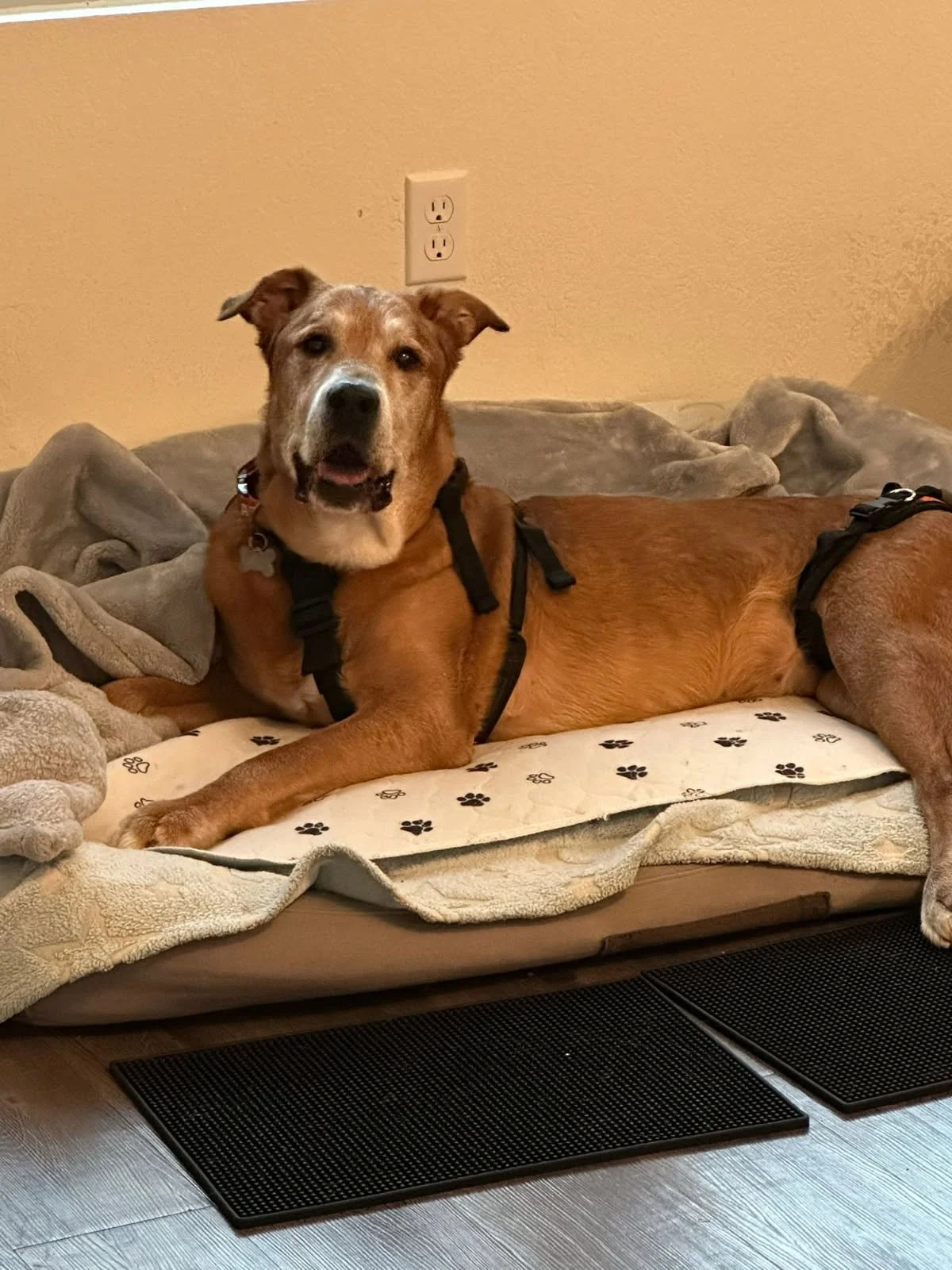Understanding Librela Side Effects in Dogs: A Guide for Pet Owners
It’s upsetting to hear that your dog has osteoarthritis. You never want your pet to be uncomfortable or in pain, but that’s part of the reality when arthritis sets in.
As you talk to your vet about the treatment options, it’s likely that the idea of using Librela has been presented. This is a relatively new drug that is being used by many pet owners to offer comfort to their furry friends. But is it right for your dog? Let’s take a closer look below.
What is Librela and Why Is It Prescribed?
Librela is a monoclonal antibody injection. It was designed specifically to manage osteoarthritis pain in dogs. The drug works by blocking nerve growth factor, a key component of chronic joint pain.
This drug is regularly being prescribed for dogs with arthritis because it has shown the ability to control their pain. For some dogs, Librela makes it possible to live comfortably once again. When it works well, pet owners note that their dogs go back to playing like they used to, and they get most or all of their mobility back. However, this drug is increasingly being used as a first line of defense, where we feel it is more appropriate as a last resort when other interventions (such as rehab) have been ineffective.
Reported Librela Side Effects in Dogs
Every drug has risks and side effects. Before you agree to have Librela administered to your pet, you should understand the risks and how they may impact your dog specifically. Since Librela is still new on the market, the reports are continuing to come in regarding what side effects are being experienced.
Lethargy and fatigue have been reported by many pet owners, along with occasional gastrointestinal upset or even vomiting. While these side effects are not pleasant, they can be temporary and may not be severe enough to warrant avoiding the drug.
The same cannot be said for more serious side effects like neurological symptoms, however. Some pet owners report that their dogs have started to experience an unsteady gait or hind-end weakness after starting the drug. Those are more concerning symptoms and would lead any pet owner to think twice about using this medication.
When Librela May Not Be the Best Option
There is little doubt that Librela can be a helpful tool when treating osteoarthritis in dogs. But that doesn’t mean it’s the perfect solution in all cases.
Specifically, this drug should be used with caution when a dog is suspected of having a neurological condition. Such conditions include IVDD and degenerative myelopathy. Also, if your dog has hind-end weakness or has been experiencing changes in coordination, you’ll certainly want to think twice about going with Librela.
The issue here is found in the way Librela works. This drug blocks nerve growth factor throughout the body. So, if your dog has a nerve compression issue or spinal injury, using Librela hinders the ability of the body to repair nerves and perform other key functions. Sensations of pain will also be dulled, so the dog may become more active - and do more damage without those important pain signals. It might seem like the problem is solved because your pet seems more comfortable, but the injury will still be there, and it could be getting worse day by day.
A Rehab Perspective: Treating the Root, Not Just the Pain
At Austin Canine Rehab, we always want to identify and treat the root cause of pain in your dog. It’s important to manage discomfort, of course, and sometimes that does mean using medications – but it can also mean building strength and mobility through a variety of treatment options.
We are always concerned about the idea of masking pain with drugs when the underlying problem is not being addressed. It’s possible that Librela might wind up being a logical choice for your pet, but we believe that if it is used, there should also be a treatment plan in place to encourage adaptation and recovery over time.
How to Talk to Your Vet About Librela
The best vet relationships are those that are open and honest. If you have concerns about the use of Librela with your dog, make those concerns clear, while also being open to hearing the input of your vet. Ask plenty of questions and bring up the potential of exploring more conservative options before going ahead with this drug. You can get on the same page with your vet through honest conversations and arrive at a plan that has your dog’s needs in mind.
Final Thoughts: Use Librela with Care and Clarity
It is possible for Librela to be used effectively for the right dog in the right situation. But it’s not an appropriate choice for every pet. And, we don’t think it’s the right option as a first step to address mobility issues.
If your dog is dealing with limping, wobbling, pain, and other issues related to arthritis, start by reaching out to Austin Canine Rehab to talk about our treatment options. We will be happy to create a personalized treatment plan that targets your dog’s overall well-being. Our team looks forward to serving you and working in sync with your Vet!
Frequently Asked Questions
-
Not necessarily. Librela is approved for use with canine osteoarthritis, but it is not an ideal choice for dogs with neurological conditions. It’s important to talk with your vet about your dog’s complete medical history to determine if using Librela is the right choice.
-
There are a number of reported side effects that can accompany Librela use. Those include neurological symptoms, lethargy, vomiting, and gastrointestinal issues. It’s also possible that the dog will develop Rapidly Progressive Osteoarthritis, or RPOA, due to overuse. With joint pain masked, the dog may become very active again, doing significant damage along the way. Of course, not all dogs will experience these side effects, but you should monitor your pet closely after each injection to watch for any signs of problems.
-
It is possible that using Librela could worsen existing neurological conditions. The use of this drug may also mask nerve-related pain, which could lead to more damage down the road. It’s important to consult with your vet before using Librela if your dog has any neuro condition, or if you suspect that such a condition may be developing.
-
In many cases, no. We believe that conservative treatments like manual therapy and strengthening exercises are the right place to start for many dogs experiencing arthritis pain. If those options don’t lead to the desired outcome, it may be worth exploring Librela use later on.
-
Always have honest conversations with your vet about any concerns you have over Librela or other medications. Talking with a certified canine rehabilitation therapist to develop a customized treatment plan for your dog that doesn’t rely solely on medication is also a smart step to take.
-
Yes, you may choose to use both Librela and rehab therapy to pursue the best possible outcome for your dog. Of course, you’ll need to monitor the dog’s health to confirm that the Librela injections are being tolerated well and no neuro concerns are developing.
References & Articles of Interest
Bassingthwaighte EB. Librela (Beransa) – Wonder Drug or Disaster in the Making? Dogs Naturally Magazine. Published October 31, 2023. https://www.dogsnaturallymagazine.com/librela-berensa-wonder-drug-or-disaster-in-the-making/
Canine Arthritis Resources and Education. Librela: What we know and don’t know. CanineArthritis.org. Published June 26, 2025. https://caninearthritis.org/librela-what-we-know-and-dont-know/
Farrell M, Waibel FWA, Carrera I, Spattini G, Clark L, Adams RJ, Von Pfeil DJF, De Sousa RJR, Villagrà DB, Amengual-Vila M, Paviotti A, Quinn R, Harper J, Clarke SP, Jordan CJ, Hamilton M, Moores AP, Greene MI. Musculoskeletal adverse events in dogs receiving bedinvetmab (Librela). Front Vet Sci. 2025 May 9;12:1581490. doi: 10.3389/fvets.2025.1581490. PMID: 40417367; PMCID: PMC12100767.
Millis D. What about Librela, anti‑nerve growth factor antibody treatment? MyLameDog.com. Published November 13, 2023. https://www.mylamedog.com/post/what-about-librela-anti-nerve-growth-factor-antibody-treatment
U.S. Food and Drug Administration. Dear Veterinarian Letter notifying veterinarians about adverse events reported in dogs treated with Librela (bedinvetmab injection). FDA Center for Veterinary Medicine; published December 16, 2024. https://www.fda.gov/animal-veterinary/product-safety-information/dear-veterinarian-letter-notifying-veterinarians-about-adverse-events-reported-dogs-treated-librela
U.S. Food and Drug Administration. Standard Adverse Event Pharmacovigilance Review for Librela™ (bedinvetmab injection). FDA; published September 2024. https://www.fda.gov/media/184483/download
Zoetis Inc. Librela™ (bedinvetmab injection) Client Information Sheet. Zoetis; published January 2025. https://www.zoetisus.com/content/_assets/docs/vmips/package-inserts/librela-client-information-sheet.pdf





